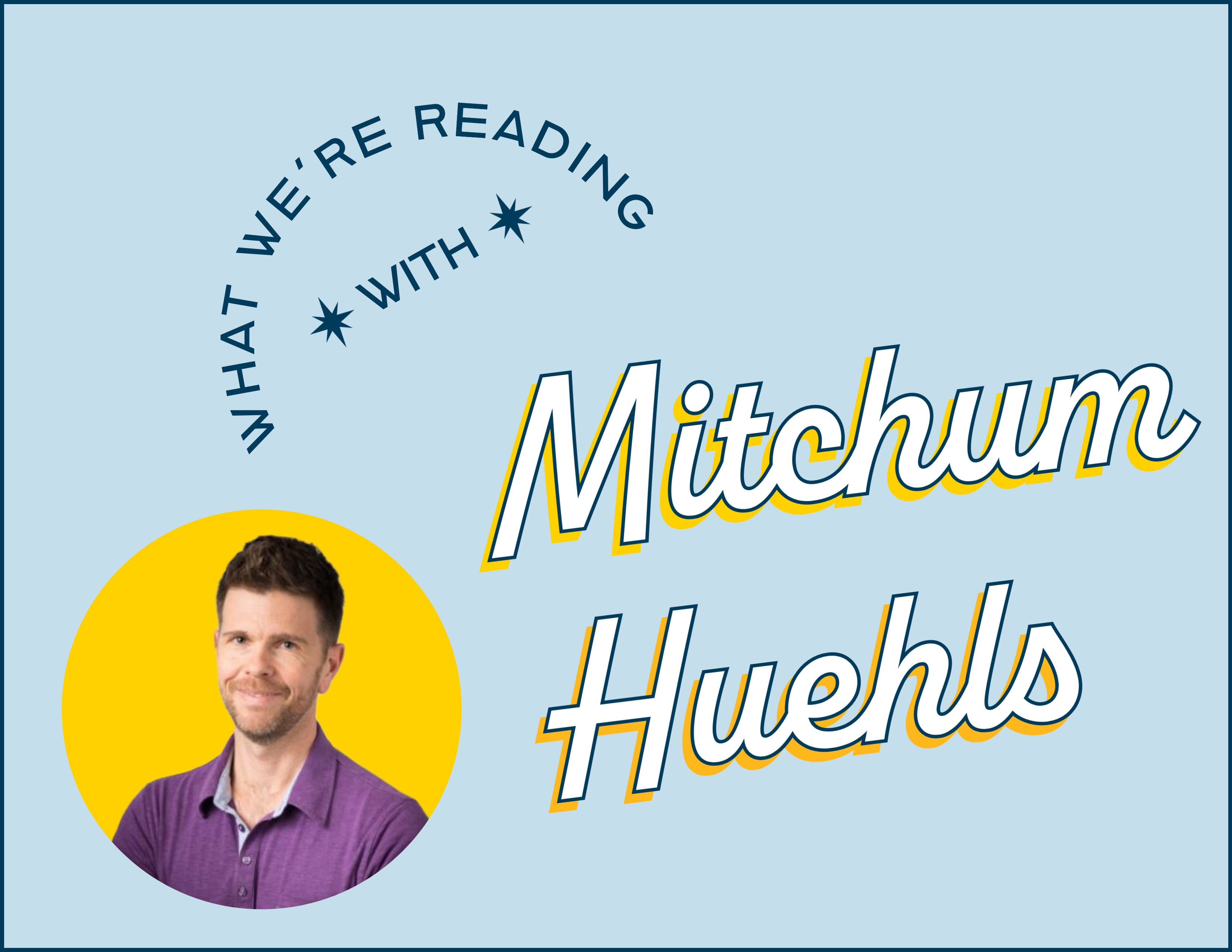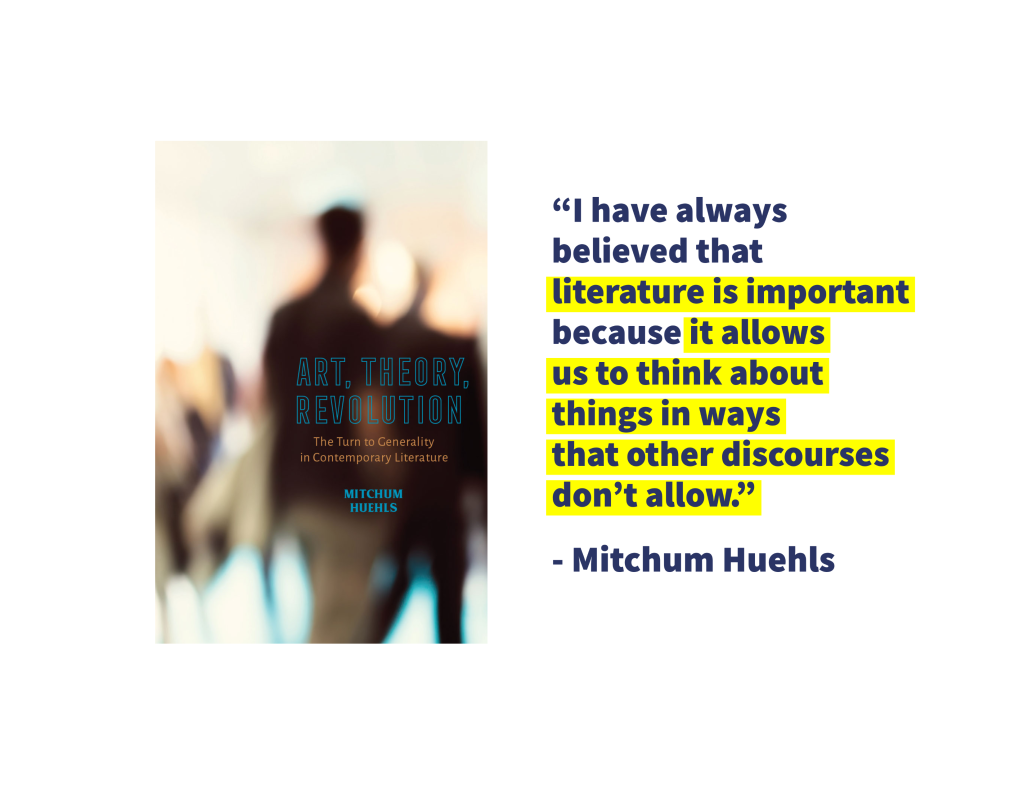What We’re Reading with Mitchum Huehls

Professor Mitchum Huehls’s new book, Art, Theory, Revolution: The Turn to Generality in Contemporary Literature, is available now through The Ohio State University Press. We caught up with Professor Huehls to discuss how his new work came about.
Can you tell us a little bit about your book, what it focuses on?
In the 1980s and 90s, when postmodern culture was ascendant, people talked a lot about “ends.” Postmodernism brought about the end or death of art. The end or death of theory. The end of history. My book is interested in what some of those big ideas (I focus on three in particular: art, theory, and revolution) look like in the twenty-first century after postmodernism supposedly killed them off in the waning decades of the twentieth-century. What kind of work do those ideas do for us today? Did postmodernism really kill them off, or are they still worth thinking about? Can they still do any work for us or have they been entirely appropriated by commodity culture?
I decided to try to answer those questions by looking at 21st-century literature, and when I looked there, I found that art, theory, revolution, remain very important ideas, but they take a different form than they did in the twentieth century. And that’s where the idea of generality comes in. Contemporary authors are still thinking about these ideas, but they are treating them more generally, thinking about them through forms of generality like gesture, genre, and the generic.
General claims are broader than merely particular claims, but they don’t rise to the level of universality. So, the general is an interestingly mushy space between particulars and universals. The argument of the book, then, is that contemporary authors are thinking about art, theory, and revolution in more general ways, and that doing so allows them to resuscitate those ideas and look at them anew. But generality also gives a weaker, more qualified take on art, theory, and revolution. That weakness can be seen as a limitation, but I argue instead that it actually opens up new, more subtle and nuanced ways for us to work with and be committed to important ideas and commitments like art, theory, and revolution.
How did you become interested in writing about the ‘politics of form’?
I have always believed that literature is important because it allows us to think about things in ways that other discourses don’t allow. History, sociology, political science, and philosophy all have certain ways of talking about the world and our relation to it, but they’re all required to write straightforward, nonfictional prose. Literature isn’t bound in that way, and I think that frees it to offer insights that are otherwise unavailable to those other discourses. Literary form becomes important, then, because that’s really where the literariness of literature comes to the fore. The most interesting thing to me about literature has always been the way it says what it says rather than what it says.
What was the process like doing research for your book?
My work is theoretically and philosophically driven, so my research mostly involves sitting and reading a lot of books. Sometimes I sit at my desk. Sometimes I sit on my sofa. Sometimes I lie in my hammock. Which is to say, my research doesn’t rely on special collections or archives that I have to travel to access like a lot my colleagues do.
 What do you hope readers come away with after reading this work?
What do you hope readers come away with after reading this work?
Even though a lot of the ideas in my book are abstract and theoretical, the most important reason generality is interesting and important to me is really quite simple and straightforward. Thinking about the world generally requires us all to be more epistemologically humble, to not be so confident about what we think we know. In our extremely polarized times, it seems like everyone already knows what’s true, what’s just, what’s progressive, what’s liberating, what’s oppressive, etc. But thinking about truth as a generality, allowing that things can be generally but not universally true, forces us to be more open and flexible with our thinking.
Do you have any upcoming projects on the horizon that you’d like to share or talk a bit about?
In the spirit of being more open and flexible with our thinking, I’ve been writing recently about an array of texts that I’ve taken to describing as “radically conservative.” These are texts that demonstrate a commitment to values that we might at first think of as conservative (e.g., family, the land, tradition, religion, community) but which are deployed in the pursuit of more radical political projects (e.g., racial justice, income redistribution, anti-capitalism, environmentalism, etc.)